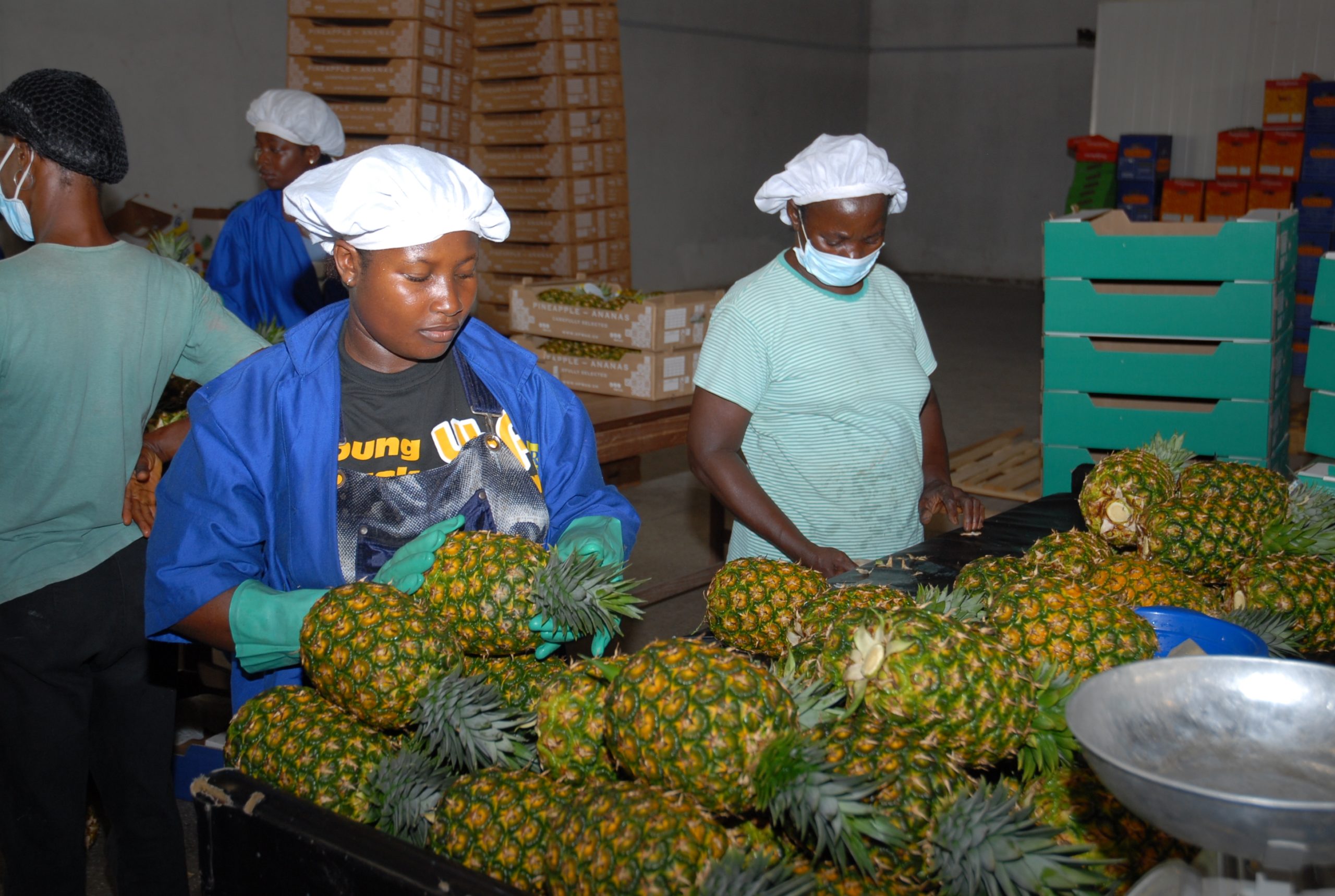
Analysis
Macroeconomic indicators in Ghana have suffered a great deal over recent years. The
Cedi had declined to the dollar by nearly 40%, budget deficit of 12% 0f GDP. External
sector moved from a surplus of $1.4 billion in 2010 to a deficit of $2.3 billion in 2013,
interest rate is at 10-year high at 19%….the list is endless. Ghana is calling for radical
and urgent remedies with the speed of the emergency services.
The call for remedy has happened in many ways including the Senchi Accord which
resulted in the 22 point communiqué. Some months apart on 15 July 2014, it was good
to hear four ‘generations’ Of Trade Ministers and a trade expert speak to the matter of
“Maximising Value of Exports to Improve Ghana’s Trade Balance”. A program put together
by Daily Graphic and Fidelity Bank and led by Ing. Kwesi Abeasi, a well experienced
private sector practitioner. One of the identified remedies is to be able to sell more
(export) and buy less (import) to improve our foreign exchange earnings.
One thing all speakers agreed on was the need to do more in Agro business in the area
of financing, processing, standard improvements, diversification and expansion of the
market. This came up in varying modes;
ß Hon. Iddrisu: Banks to do more to finance agro business and for businesses to
make use of EDAIF funding from government. He additionally hinted on the plan
to increase Non Traditional Exports (NTEs) from $2.4 billion in 2013 to $5.0 billion
in 2017.
ß Hon. Dr. Apraku: Ghanaians to demonstrate the will and capacity to solve our
trade problems and to create a banking institution for sole responsibility of funding
exports
ß Alan Kyeremanteng: To look for new strategies for our trade to be more
competitive and to fit the standards of the global market. Also the need to move
away from what he describes as ‘NATO -No Action, Talking Only’.
ß Gideon Quainoo: Consider varying products within the NTEs, build capacity to
supply big quantities and also Buy, Sell and Use Ghanaian products.
ß Hon. Hannah Tetteh: To look at our production capacity by solving our land
availability issues.
The leadership of the organizing entities made it clear that they do not intend to make
this event a talk shop but expect that something good comes out of these events of
which this is the second this year.
Very brilliant recommendations were made by the speakers and discussions following
were very fruitful. In all truth it confirms that Ghana has the men to do the job. I am sure
a lot people left fulfilled at the content of discussions, but what next? A few points that
pricked my mind as these ministers spoke.
Hon. Dr. Apraku made mention of a National Trade Policy he started in 2006 and which
was completed by Alan Kyeremateng. Did the succeeding Trade Minister in 2009 ever
see it and did they ever work with it?
Where did Dr, Apraku take over from? Was there no good thing he could have carried
over from the NDC government in 2001? This is where our problem lies. Inconsistency
and discontinuity!
In a typical non-partisan event as that, one would have expected that credit was given
on work done by past trade minister which were beneficial to the nation. Hon. Mahama
Iddrissu mentioned of a non-partisan advisory council to be formed by government to
advise on the way of our exports. How soon is that supposed to happen and in fact do
we need that again? Ghana needs a continuous export development plan and surely
there may be blue prints dating back decades lying on our desks and gathered dust.
Let’s just get them and go to work. Indeed we do not need another advisory council
neither do we need another bank as suggested by Dr. Apraku. We will only be re-
inventing the wheel. It is worth looking at a strategy that promotes semi-processed
products and derivatives of Cocoa, Wood, Plastics, Salt, Vegetable Oil seeds, Industrial
starch, Aluminum, Fruits and others. We need look at the land availability issues
mentioned by Hon. Hannah Tetteh, build production capacity and readiness to supply
when the world calls for it. Businesses are doing their bit but it still come down to
government to respond much quicker to the needs of the businesses. EDAIF from all
sources is difficult to access and that explains why businesses do not seem to take
advantage of it, as the Hon. Minister bemoaned.
For all recommendations made, we call for continuity in pursuing a national interest in
developing our exports. The government and politicians should help achieve this. The
National Trade Policy would work, of course combined effectively with the just agreed
EPA. It is evident in all such forums that we know so much already, dating back to
PNDC times. It is now time to act. As Alan Kyeremanteng said ‘I’ve lost an appetite for
these meetings because Ghana has become ‘NATO’ which is ‘No Action, Talk Only’.
Strategy only works when it has been implemented. In the meantime, we wait for
realization of the famous Royal Senchi 22-point communiqué.
www.ghanatalksbusiness.com


